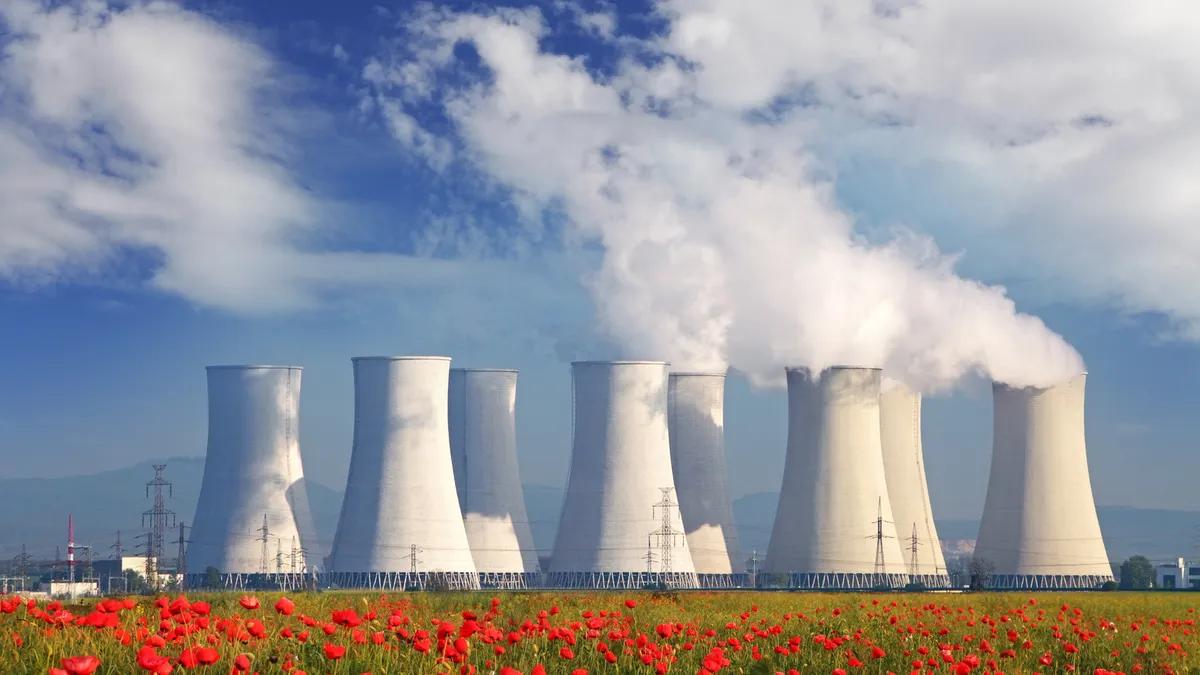Dive Brief:
- Absent financial subsidies and policy support, the nuclear industry will cease to exist within the next decades, Bob Mancini, one of the leaders of the Carlyle Group’s power unit, said at a conference, Bloomberg reports.
- According an earlier report, costs of building a nuclear plant may be more than five times the amount of constructing a gas-fired one.
- Debates over financial supports for nuclear plants have been at the heart of debates now going on in New York and Illinois, where plants are under pressure from cheap gas-fired generation and lawmakers have attempted to keep them running.
Dive Insight:
Nuclear plants have struggled to compete against cheaper fuels, and supporters of the industry say the plants' carbon-free generation isn't being properly compensated. The facilities are needed to meet climate goals, but efforts to keep them online are repeatedly running into trouble.
New York's proposed Zero Energy Credit (ZEC) strategy to support the plants is one such strategy facing legal challenges, while Exelon announced this summer it would shutter two facilities in Illinois after a similar strategy failed to pass lawmakers. According to Bloomberg, Mancini told a power conference this week that his firm believes "we will see the end of the nuclear industry in the next coming decades," unless supports can be put in place. Nuclear is expected to make up 19% of the U.S.'s generation this year, according to the U.S. Energy Information Administration.
In New York, the Fitzpatrick, Ginna and Nine Mile nuclear plants are expected to produce 27.6 million MWh of carbon-free generation annually, helping the state in its goal to cut greenhouse gas emissions 40% from 1990 levels by 2030. But when the plants threatened closures, the state enacted subsidies that are now being challenged at the Federal Energy Regulatory Commission. Opponents argue the subsidies interfere with wholesale market signals.
In a lawsuit, a group of generators told FERC that the U.S. Supreme Court has blocked arrangements that essentially set a floor price for state-incentivized generation.
Exelon, the largest nuclear generator in the country, may wind up owning all three of the New York plants if its plan to acquire FitzPatrick and keep it online is approved. But the company now plans to shutter the Clinton and Quad Cities nuclear plants in Illinois, after legislation to subsidize them did not pass.
Exelon's proposed Illinois legislation would have established a Zero Emission Standard that would provide make-whole payments to the plants. The company said the pair of nukes have lost a combined $800 million in the past seven years.















